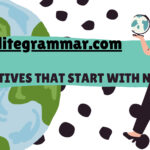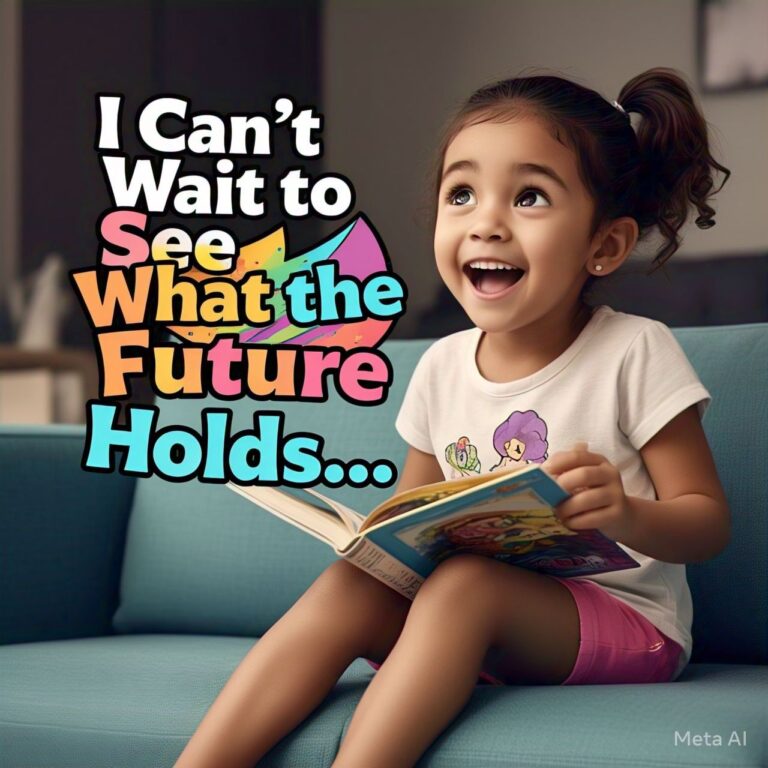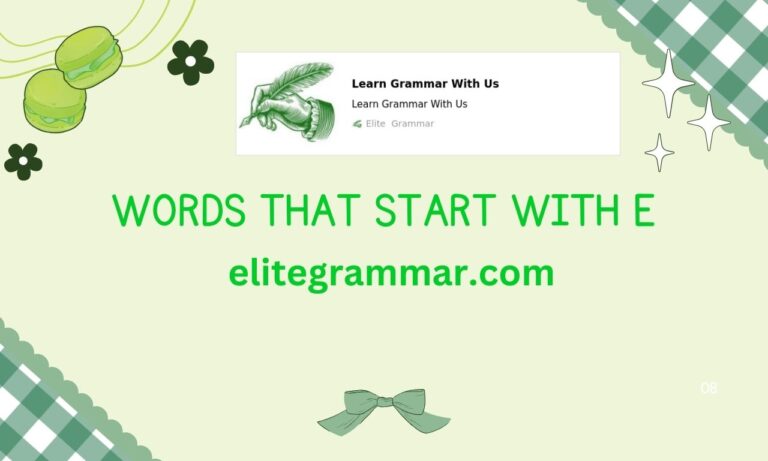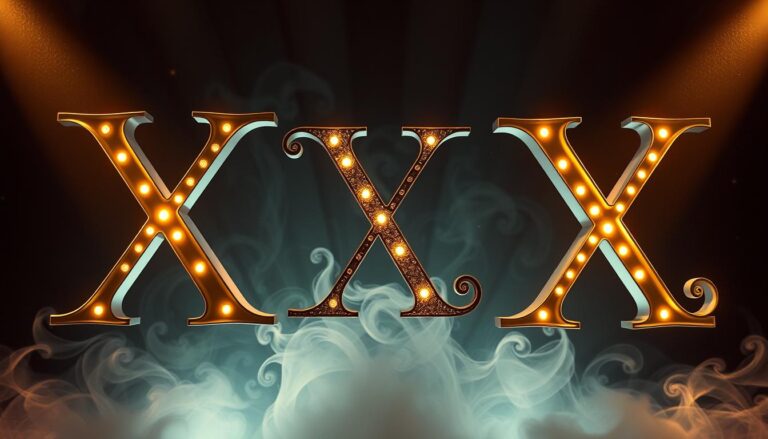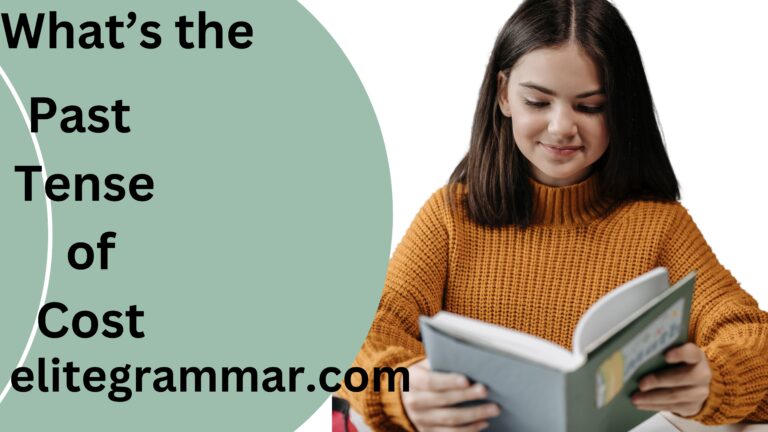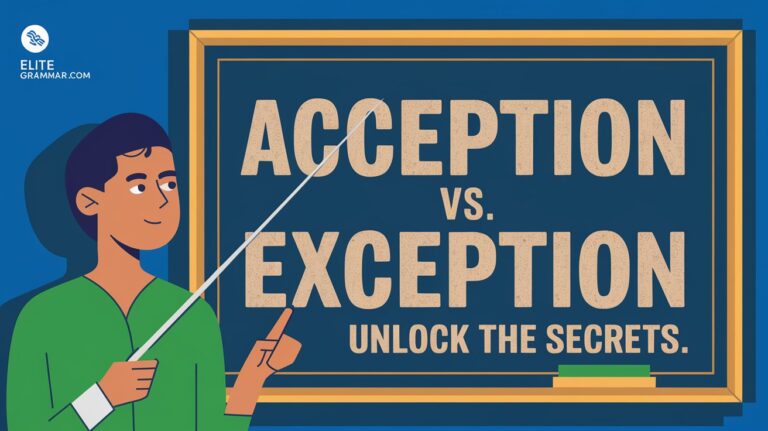Adjectives That Start With Z
English is full of words, but those starting with Z are special. Words like zesty and zealous make writing and talking more exciting. This guide shows how adjectives with z can make your descriptions pop.
Z words might be rare, but they’re powerful. Words like zealous or zigzag (yes, it’s an adjective!) are important. They add depth to stories, daily talks, and even tech terms.
If you write, study, or just love words, this guide is for you. It covers adjectives that start with Z in different areas. Learn to use these unique words to boost your creativity and accuracy.
Understanding the Rarity and Impact of Z Adjectives
Z is the least common starting letter in English. Only 0.07% of words start with Z. This makes Z adjectives very rare and powerful.
These words grab attention because of their rarity. Their unique sound and spelling make them memorable. This helps writers stand out.
Z adjectives like zephyrous are fresh and exciting. They add a special touch to writing. Using words like zany or zestful makes sentences pop.
Learning Z adjectives is beneficial for everyone. They add flair without being too common. This is perfect for highlighting important points or creating vivid images.
Common Adjectives That Start With Z in Everyday Language
Everyday talks are filled with adjectives that start with z we all know. “Zealous” and “zippy” are at the top, used in media, sports, and everyday conversations. They make descriptions more interesting and fun.
| Adjective | Meaning | Example | Frequency |
| Zealous | Fervent enthusiasm | “The team’s zealous effort won the match.” | Top 10% usage |
| Zippy | Energetic and lively | “Her zippy jokes kept the audience laughing.” | Common in informal contexts |
| Zany | Whimsically odd | “The show’s zany characters drew huge crowds.” | Used in entertainment reviews |
| Zero | Complete absence | “The room had zero noise after the alarm rang.” | Most frequent technical term |
Grammar rules are important too. “Zealous” usually comes before nouns (“a zealous advocate”). “Zippy” can come after linking verbs (“The car felt surprisingly zippy”). Remember, “zany” is playful unless it’s with words like “disturbingly.” Knowing these helps avoid mistakes in emails, reports, or creative writing. These adjectives that start with z make our language more colorful and engaging.

Positive Adjectives That Start With Z
Boost your vocabulary with positive adjectives starting with Z. Words like zealous, zestful, and zesty bring enthusiasm and vibrancy. They make your descriptions stand out, offering a fresh twist over common synonyms.
Zealous means showing intense passion, like “a zealous advocate fighting for justice.” Zestful captures lively energy, such as “a zestful storyteller captivating the crowd.” These words add vigor to your sentences, unlike generic terms like “enthusiastic” or “lively.”
Zesty adds a tangy charm, like “a zesty lemon dessert.” Zippy means brisk energy, like “a zippy conversation sparking creativity.” These adjectives replace common phrases, making your descriptions more vivid. Choose them wisely: zealous for dedication, zestful for joy, and zesty for sensory appeal.
Learning these words can enhance your communication. Use them to highlight positive traits in resumes, social media, or stories. Their unique sounds and meanings make them perfect for grabbing attention in any context.
Negative Adjectives That Start With Z
Some Z adjectives clearly show negativity. For example, zonked means extremely tired, like “He felt zonked after pulling an all-nighter.” Zymotic means caused by infection, like “zymotic outbreaks in unsanitary conditions.” These words help describe bad situations or traits accurately.
“Zealless” means lacking passion, as in “her zealless approach stalled the project.” “Zero” can mean something has no value, like “The plan had zero chance of success.” Each word has its own emotional impact, so use them carefully.
It’s important to consider the context. “Zonked” is good for casual talks, while “zymotic” is better for academic writing. Be careful with “zero” to avoid being too harsh. Always try to offer solutions with your criticism to make it clear and respectful.
Z Adjectives to Describe a Person’s Character
Using precise language makes character descriptions sharper. Zen-like shows calm focus, while zealous shows passion. These words add depth without being cliché.
For example, saying someone is “zen-like” means they stay calm under pressure. A creative friend might be “zany,” showing both their oddness and charm. “Zestful” energy shows someone’s enthusiasm for life.
Adjectives starting with Z paint vivid pictures of people. “Zealous advocates” show deep commitment, while “zestful adventurers” suggest curiosity. These words simplify complex traits into one word.
In work settings, “zen-like focus” might highlight problem-solving skills. “Zany humor” is great for casual profiles, adding fun to social media.
Cultural views play a role. “Zestful” fits well in motivational talks, while “zen-like” is popular in wellness trends. Younger people might enjoy “zany,” while older folks might prefer “zealous.” Using these z adjectives can make descriptions stand out, whether in a novel or a LinkedIn profile.
Uncommon Z Adjectives to Elevate Your Writing
Adding adjectives that start with Z to your writing can make it stand out. Think about using zymotic, which comes from Greek “zymē” (fermentation). It describes how microbes work: “The zymotic reaction turned grapes into wine overnight.” Say it as ZY-mot-ik, and it fits well in science or history.
Zoetic (ZOH-eh-tik) is about life’s core. “Her poetry captured the zoetic spirit of nature” is a great example. On the other hand, zoomorphic means having animal-like features. “Zoomorphic sculptures adorned the temple walls” creates a clear picture without being too hard.
Even common words like zigzag can be powerful in creative writing. Instead of saying “twisting path,” say “the river followed a bold zigzag course through the canyon.” Using these words in the right way makes your writing clear and engaging. Famous writers like Tolkien used them to make their stories richer.
It’s important to use these words wisely. Put them in situations where they make sense so readers can understand them easily. Too many rare words can confuse people. Use zymotic or zoetic carefully to add depth, not just to show off.

Z Adjectives That Describe Emotions and Feelings
Emotions that start with Z show intense or unique feelings. “Zealous” means having a strong passion, like a zealous advocate for change. “Zonked” means being extremely tired, like after a night without sleep. These words help us share feelings that are hard to say.
| Adjective | Emotion/Feeling | Example Use | Intensity |
| Zealous | Fiery passion | “Her zealous speech ignited the crowd.” | High |
| Zonked | Drained exhaustion | “He felt zonked after the marathon.” | High |
| Zestful | Lively excitement | “The party was filled with zestful energy.” | Medium |
| Zen | Inner calmness | “Her garden brought a zen-like peace.” | Low |
These words help us talk about feelings in therapy or writing. Saying “zealous” instead of “excited” makes it clearer. “Zonked” is better than “tired” for feeling really exhausted. Using Z adjectives makes our feelings clear, helping us understand and connect with others.
How to Use Z Adjectives in Creative Writing
Adding zingy flair to stories starts with knowing where to place adjectives that start with z. Words like zestful or “zephyrous” work best in small doses. Overuse can distract readers, but a well-placed “zealous” or “zany” brings scenes to life. Study how authors like Zora Neale Hurston used vivid language to color characters and settings.
Try weaving “zestful” into descriptions of lively settings or “zigzagging” paths to create motion. Pair “zinc-like” textures with metaphors for unexpected contrasts. When crafting dialogue, let a character’s “zealous” speech patterns reveal their passion. Avoid forcing rare terms like “zonkle” (a Scots term for a shaggy appearance) unless fitting the story’s voice.
Practice by rewriting bland sentences: Turn “The party was fun” into “The party buzzed with zingy energy.” Highlight emotions with “zestful laughter” or “zonked exhaustion.” Test phrases aloud to ensure they flow naturally. Balance creativity with clarity—readers should feel the impact without stumbling over unfamiliar words.
Start small: Add one Z adjective to a scene draft. Note how it shifts tone. A “zephyrous breeze” suggests calmness, while “zinc-gray skies” hint at tension. These tools sharpen imagery without overwhelming prose. Let Z adjectives become subtle highlights, not loud interruptions.
Z Adjectives in American Literature and Culture
American literature loves zany creativity. It uses adjectives that start with Z to show off cultural quirks. Mark Twain’s humor often featured zany stories.
F. Scott Fitzgerald mixed “zymurgy” (a rare term for fermentation) with the Jazz Age’s decadence. Toni Morrison’s “zone” of introspection in Sula contrasts with David Foster Wallace’s “zero-sum” critiques of modern life. These choices show how Z adjectives shape stories and themes.
“Zanyism” became a key part of vaudeville and 1960s sitcoms. It evolved into today’s absurdist TV shows like Arrested Development. Advertisers use “zingy” slogans to sell snacks.
Films like Zoolander mock superficiality with Z-word puns. Musicians from Frank Zappa to Taylor Swift use “zesty” and “zigzag” rhythms to reflect cultural changes.
American English is more inventive with Z terms than British English. “Zealot” debates in speeches or “zero-based” budgeting jargon show both practicality and playfulness. From Mark Twain’s humor to modern tech buzzwords like “zoomable” interfaces, these words highlight America’s innovation and diversity.
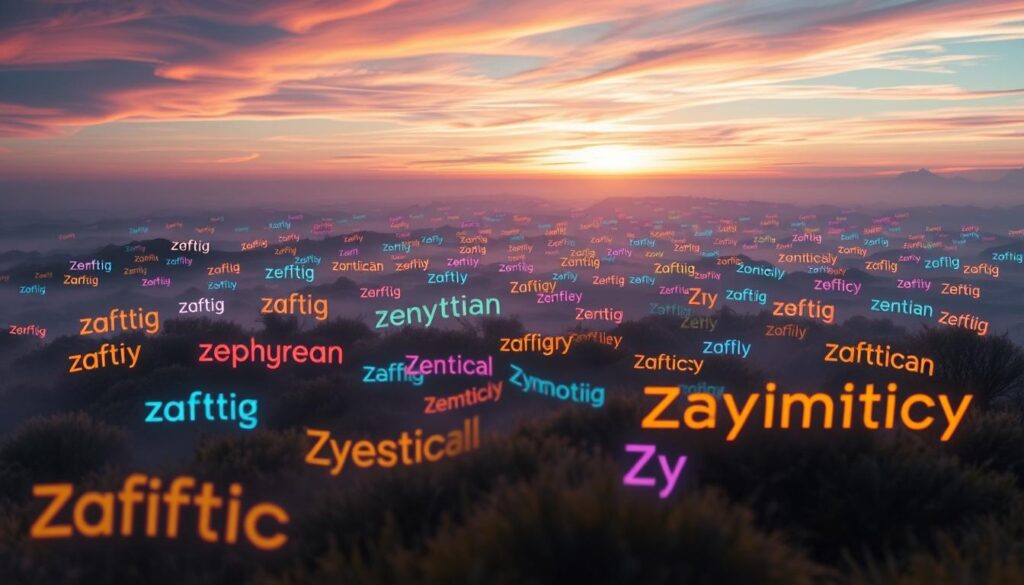
Academic and Technical Z Adjectives
Academic and technical fields need clear language. Words like “zymotic” are used in medical research. It means infectious diseases, coming from Greek.
Medical journals use it to talk about pathogens. Saying it out loud is “ZIM-ot-ik.” It’s not common but very important in studying diseases.
Engineers and analysts use “zeroed-in” for systems that focus very closely. For instance, a satellite might aim at a target with this precision. This term mixes technical talk with simple language. It helps make engineering reports clear about needing exactness.
Zoological and zenith examples show up in many areas. Zoology sorts out animal kinds, while astronomy talks about the highest points in the sky. Even business leaders might say a company reached its “zenith of success.” These words help connect specific and general talk, making professional writing better in many fields.
Fun and Playful Z Adjectives for Children’s Vocabulary
Teaching kids adjectives that start with Z is like playing a word game. Words like zany and zonky spark their imagination. For example, “zany” describes a clown’s silly acts, and “zonky” fits a lopsided hat.
Using pictures with definitions helps young learners understand fast. It makes learning fun and easy.
It’s important to use strategies that fit each age group. Preschoolers love rhymes like “Zippy zebras zoom!”
Older kids can write stories using “zigzag” to describe a snake’s path. Here’s how to tailor activities for different ages:
| Age Group | Example | Activity |
| 3–5 | Zany zoo day | Draw zany animals |
| 6–8 | Zonky puzzle pieces | Match words to pictures |
| 9–12 | Zigzag storytelling | Create comic strips |
Teachers and parents can use songs like “The Zany Zebra Song” or books like Ziggy’s Zany Zoo Adventures to teach these words. Encouraging kids to find “zonky” objects on walks makes learning fun. It shows that even tricky letters like Z can be enjoyable!
Z Adjectives From Around the World: Borrowed Terms
Language grows through sharing cultures. Some z adjectives come from languages worldwide. “Zen” comes from Japanese, meaning calm or simple, like a zen garden.
“Zaftig” from Yiddish means being full-figured in a good way. German’s “zeitgeist” now means the spirit of an era. “Zesty” comes from Latin, highlighting bold flavors or energy.
Pronunciation changes to fit English sounds. “Zaftig” sounds like “giraffe it,” and “zeitgeist” is “tsite-gyst.” Knowing where words come from helps use them right.
Using z adjectives from other cultures makes writing richer. “Zestful” means full of life, and “zellige” (from Arabic) means mosaic tiles. These words bring different cultures into our stories, making them more engaging.
Learning about these words shows respect for their origins. This way, words like “zen” keep their true meanings.
How to Pronounce Challenging Z Adjectives
Learning to say adjectives that start with z right is key. Words like zephyrous and zymotic can be hard. Look up phonetic guides to help with tricky sounds.
| Adjective | Pronunciation | Meaning | Example |
| zephyrous | ZEF-uh-ruhs | Relatinging to a gentle breeze | The zephyrous wind carried spring scents. |
| zymotic | ZY-mot-ik | Pertaining to fermentation | Zymotic processes create sourdough. |
| zoomorphic | ZOH-uh-MOR-fik | Having animal features | The zoomorphic statue had a lion’s head. |
| zeitgeist | TSAHYT-gahyst | Spirit of an era | Modern tech reflects today’s zeitgeist. |
Don’t get zymotic wrong (ZY-mot-ik, not zim-OT-ick). How you say zeitgeist can change in different places. Try saying “Zymotic zephyrous zoomorphic zest!” a few times.
Use online tools like Forvo or dictionary audio clips to check sounds. Say phrases out loud to get better. Knowing these sounds makes you sound clearer and more confident when using z words.
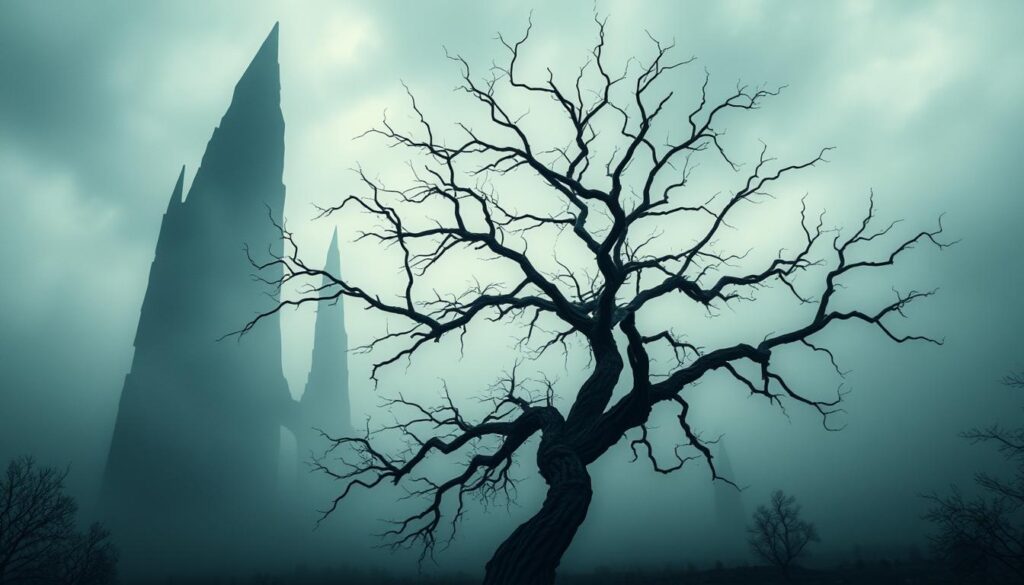
Practical Examples: Sentences Using Z Adjectives
Learning adjectives that start with z gets easier with examples from everyday life. See how these words make writing better in different situations:
| Adjective | Sentence | Context | Usage |
| Zealous | “The zealous team rallied for the cause.” | Advocacy | Attributive |
| Zingy | “The zingy salsa sparked lively debate.” | Culinary critique | Predicative: “The recipe felt zingier than expected.” |
| Zany | “His zany joke broke the tension.” | Comedy | Comparative: “Her humor was more zany than his.” |
| Zesty | “The review praised the movie’s zesty dialogue.” | Entertainment | Superlative: “The most zesty performance of the year.” |
In business writing, say: “Our new product line offers zingy solutions for modern kitchens.” Or in everyday talk: “That zany idea might just work!”
For example, “The speech was energetic” versus “The speech was zealous and inspiring.” The Z adjective makes the description more specific.
Character Traits That Start With Z: Building Your Descriptive Power
Character traits starting with Z offer unique ways to describe personalities. Words like zealous and zen-like add precision to stories and professional writing. They highlight key aspects of behavior and mindset.
| Trait | Definition | Positive Aspects | Negative Aspects | Example |
| Zealous | Passionate commitment | Driven, motivated | Risk of burnout | A zealous advocate fights for equality. |
| Zen-like | Calm and focused demeanor | Steady under pressure | Potential for detachment | A zen-like manager calms team stress. |
| Zestful | High energy enthusiasm | Inspires others | May overwhelm | Zestful students engage in class debates. |
| Zany | Playfully unconventional | Encourages creativity | Seen as unprofessional | A zany comedian surprises crowds. |
Zealous traits are perfect for roles needing passion, like activism. Zen-like traits are great for leadership. Zestful energy is perfect for education. Zany humor is best in the arts.
Professionals can highlight these traits in resumes or performance reviews. But remember, what’s zany in one culture might seem normal in another. Understanding these differences helps writers and employers create accurate portrayals. Use them to add depth to characters or enhance workplace communication.
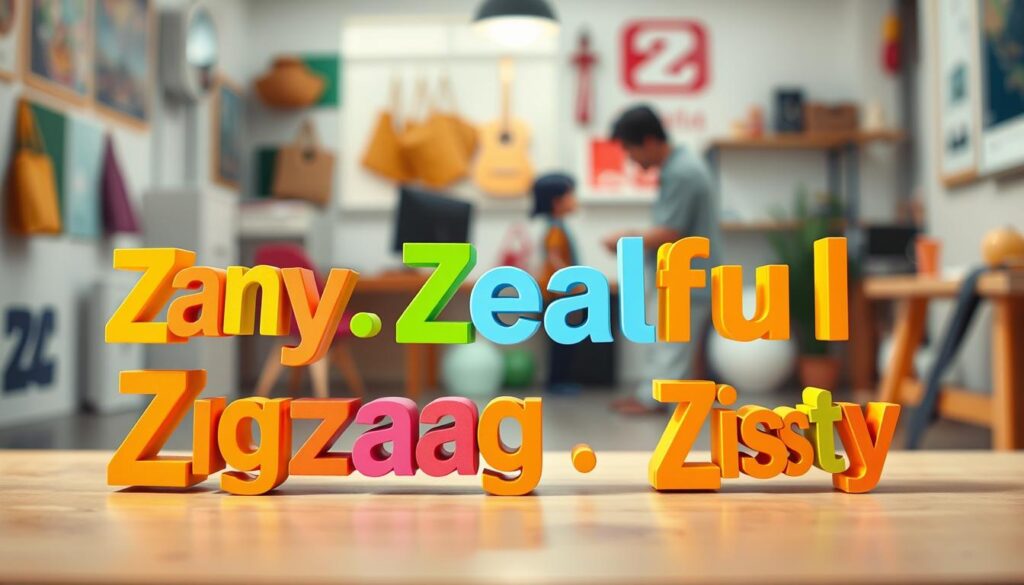
Conclusion: Enrich Your Vocabulary With These Zingy Z Adjectives
Discovering adjectives that start with z opens up a world of expression. Words like zesty, zany, and zealot-like bring excitement to our words. Use zestful descriptions in emails, stories, or daily talks to catch attention.
For example, saying a dish is “zingy” shows its lively taste. Calling something “zestful” means it’s full of energy and joy.
Merriam-Webster and Oxford English Dictionary are great for learning these words. Apps like Vocabulary.com make it fun to practice using them. Begin by swapping out common words with z-words when you can.
Using z-words makes your writing and speaking more precise and creative. They keep your words fresh and interesting. Whether you’re writing a resume, a poem, or talking about art, these words add a special touch.
Try out words like zellige (glazed tile) or zymology (study of fermentation) to make your technical writing more interesting.
FAQS: Adjectives That Start With Z
What are some positive adjectives that start with Z?
Positive Z adjectives include “zealous,” “zesty,” “zippy,” and “zestful.” They show enthusiasm and energy in different ways.
Can you provide examples of negative adjectives that start with Z?
Negative Z adjectives are “zealless” and “zonked.” “Zealless” means lacking enthusiasm. “Zonked” means being very tired or confused.
What are some character traits that can be described using Z adjectives?
Z adjectives describe traits like “zany” and “zen-like.” “Zany” means being comically odd. “Zen-like” means being calm and centered.
What are emotions that can be described with Z adjectives?
Emotions like “zealous” and “zonked” start with Z. “Zealous” shows strong support or excitement. “Zonked” means feeling very tired or confused.
What are some fun Z adjectives suitable for children?
Fun Z adjectives for kids are “zany,” “zippy,” and “zigzag.” They make learning fun and exciting.






